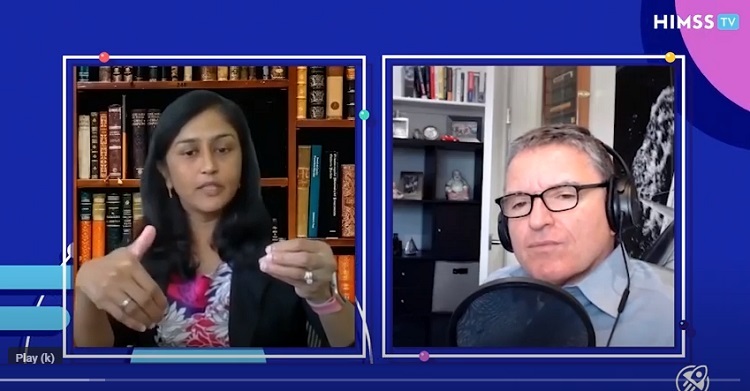Why Premium Pet Food Is Worth the Price A Buyer’s Perspective explores the fascinating world of pet nutrition, revealing why investing in high-quality food can significantly enhance your pet’s health and well-being. With a growing awareness among pet owners about the ingredients and sourcing of pet food, this discussion sheds light on the tangible benefits that premium options offer. From improved digestion to increased energy levels, the advantages of choosing premium pet food extend far beyond the initial cost.
This journey into premium pet food allows us to understand the nuances of ingredients, the importance of nutrition, and how these factors contribute to the overall happiness and longevity of our furry companions. By examining the reasons behind the price tag, we can appreciate the value of making informed choices for our pets.
In today’s fast-paced digital world, the significance of effective communication cannot be overstated. From personal interactions to business dealings, the way we express ourselves has far-reaching implications. It shapes perceptions, builds relationships, and can even influence the outcome of negotiations. In this article, we will explore the vital elements of effective communication, tips to enhance your skills, and the impact it can have on your professional and personal life. Understanding CommunicationAt its core, communication is the process of exchanging information, thoughts, ideas, and feelings.
It encompasses both verbal and non-verbal methods, including spoken words, written language, body language, and facial expressions. Effective communication is not merely about conveying a message; it involves ensuring that the message is not only received but understood as intended.### The Importance of Effective Communication
1. Building Relationships
Whether in personal or professional settings, strong communication skills foster trust and understanding. When individuals communicate clearly, they are more likely to form meaningful connections. In the workplace, this can lead to better teamwork, collaboration, and overall morale.
2. Enhancing Clarity and Reducing Misunderstandings
Often, misunderstandings stem from poor communication. By expressing thoughts clearly and checking for comprehension, the likelihood of confusion decreases significantly. For instance, in project management, clear instructions can prevent errors and ensure that everyone is on the same page.
3. Facilitating Conflict Resolution
Conflicts are a natural part of any relationship. However, effective communication can help resolve disputes amicably. By engaging in open dialogue and actively listening to one another, parties can address issues more constructively.
4. Boosting Professionalism and Credibility
In the workplace, the ability to communicate professionally can enhance your reputation. Colleagues and clients are more likely to respect and trust individuals who articulate their thoughts well and express themselves confidently.
5. Influencing and Persuading
Whether you’re pitching an idea to your team or negotiating a deal with a client, effective communication is crucial in persuading others. The ability to present your case convincingly can set you apart in a competitive environment. Key Elements of Effective Communication To enhance your communication skills, consider focusing on the following key elements: Active ListeningListening is just as vital as speaking in the communication process.
Active listening means fully concentrating on what the other person is saying rather than merely waiting for your turn to speak. Here are some tips to improve your active listening skills:
Give Full Attention
Put away distractions such as phones or laptops. Maintain eye contact to show that you are engaged.
Reflect and Clarify
After the speaker finishes, paraphrase what you heard to confirm understanding. This not only shows you were listening but also provides clarity.
Avoid Interrupting
Allow the speaker to finish their thoughts without interjecting. This demonstrates respect for their viewpoint. Clarity and Conciseness Avoid jargon and overly complex language. Strive for simplicity and clarity in your messages. Here’s how to be more concise:
Get to the Point
Start with your main idea and provide necessary details afterward. This prevents the listener from losing focus.
Use Simple Language
Choose words that are easy to understand. This is especially important when addressing a diverse audience. Non-Verbal CommunicationYour body language and facial expressions can convey just as much, if not more, than your words. Be mindful of your non-verbal signals:
Maintain Open Posture
Avoid crossing arms, as it can signal defensiveness. Instead, use an open stance that invites dialogue.
Use Appropriate Gestures
Hand movements can help emphasize your points; however, be careful not to overdo it.
Pay Attention to Tone
The way you say something can change its meaning. Ensure your tone matches your message. EmpathyUnderstanding the perspective of others can significantly improve your communication. Show empathy by:
Acknowledging Feelings
Recognize and validate the emotions of others. For instance, if a colleague is frustrated, acknowledging their feelings can foster trust.
Putting Yourself in Their Shoes
Try to see the situation from their perspective. This can lead to a more compassionate and understanding dialogue. Feedback Providing and receiving feedback is a critical aspect of communication. Here’s how to do it effectively:
Be Constructive
When giving feedback, focus on specific behaviors rather than personal attacks. Use ‘I’ statements to express your feelings without blaming the other party.
Encourage Openness
Foster an environment where feedback is welcomed and seen as an opportunity for growth. Tips to Enhance Your Communication Skills
1. Practice Public Speaking
Join groups like Toastmasters to practice public speaking in a supportive environment. This can build your confidence and improve your verbal communication.
2. Engage in Conversations
Make a habit of engaging with people in various settings. The more you practice, the better you will become at articulating your thoughts.
3. Read Widely
Exposure to different writing styles and ideas can enhance your vocabulary and help you become a more effective communicator.
4. Seek Feedback
Ask trusted friends or colleagues to provide feedback on your communication style. Be open to their suggestions for improvement.
5. Reflect on Conversations
After interactions, take a moment to reflect on what went well and what could be improved. This self-assessment can be invaluable for growth. The Impact of Technology on CommunicationIn recent years, technology has revolutionized the way we communicate. While it offers convenience and connectivity, it also presents challenges:
Digital Communication
Emails, texts, and social media have become primary communication channels. However, the lack of non-verbal cues can lead to misunderstandings.
Virtual Meetings
With remote work on the rise, video conferencing has become commonplace. Here, it’s essential to be aware of both verbal and non-verbal signals, as they can convey different messages in a virtual environment.

Information Overload
The sheer volume of communication can be overwhelming. It’s crucial to prioritize messages and respond thoughtfully. Conclusion Effective communication is an art that can be mastered with practice and intention. By focusing on active listening, clarity, non-verbal cues, empathy, and constructive feedback, you can enhance your communication skills significantly. The impact of these improvements will be felt not only in your professional life but also in your personal relationships.
Embrace the journey of becoming a more effective communicator, and you’ll find that it opens doors to new opportunities and enriches your interactions with others. Remember, communication is a two-way street, and by becoming a better communicator, you contribute positively to the conversations around you.










